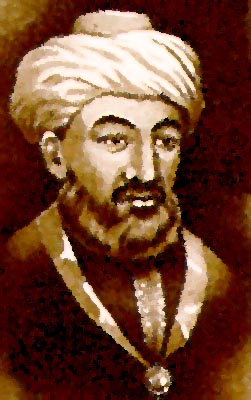History of Doubt

| Listen Now! | Transcript | Helpful Guide |
Doubt is not a modern idea, which many people today believe, but actually has roots traced back to ancient Greek philosophers. This is where we get the terms like “cynic” and “skeptic”.
The word cynic meant dog, and the idea was that a cynic lives life casually like a dog. These people would just go with the flow and not worry about dignity. They are not thought of as people who dismiss everything, rejecting human culture and not caring about beliefs, desires, or memories. The father of this group is thought to be Diogenes. There is a story where Alexander the Great tried to bribe Diogenes and give him any gift to see make him move away from the cynical life. Diogenes then asked Alexander if he could stop blocking his sunlight.

Skeptics go back to Socrates and his quote, “I do not really know anything”. It involves questioning our ability to know anything at all. It talks about humans not being made to gather the truth. It questions how there can be competing philosophies that all seem correct and later develops into the study of probabilities.
Epicureans are thought of as being hedonistic. Epicurus talked of refining our hunger instead of the food we eat. He said to love the things you have. HE spoke of forgetting fear. The fear of pain is worse than the actual pain. Forget the fear of gods because there aren’t any. Most importantly, forget the “fear of death”, death is so final that when it finally happens there is nothing to mourn. Also death is what makes life sweet because there won’t always be other moments like the one you are experiencing.

Doubters don’t hate religion. They respected the answers it has come up with. Religion still came from humanity so there is no reason to throw it out. Doubters just don’t believe that the world is being guided or judged. There are even doubters in religion.
The book of Job talks of the idea of divine justice. There was no idea of an afterlife in Judaism yet, so if you were holy, God would make life good to you. Job’s life is wonderful but then goes to hell. His kids die, he’s stuck cleaning stables, and kids spit on him. But, he doesn’t question God until his friends tell him that God thinks he deserves this. At the end God never mentions divine justice, and Job still doesn’t have the answers to these sorts of questions, but Job returns to God. From a doubting perspective this story is seen as a howl against the injustice of the world.
The Book of Ecclesiastes has a stoic approach to the world. It says all is futile. There is nothing new and nothing to gain in this world.
Christianity addresses the idea of husbanding ones faith and dealing with doubt. Doubt was already around during the time of Jesus. People questioned an anthropomorphic God. Christianity addresses it saying that there needs to be a leap of faith (Kierkegaard). In two of three gospels Jesus cries out, “My God, why have you forsaken me?” This line seems so authentic that it had to be written down in the gospels. Christianity is filled with periods of doubt (Aspect to biblical faith).
Saint Augustine addresses doubt in his book City of God.
Rene Descartes used doubt to become the father of European rationalism. He dismissed every opinion that was doubtable because he realized he had accepted false ideas as true.
Doubt follows a geographical course in history. First it begins Rome and is promoted Christianity for a period. Then the religion persecutes doubters and the philosophers move east to the Byzantine Empire. They are kicked out there after a while, and the philosophers go to the new cities of Muslim Empire. This inspires an Islamic Golden Age with doubters of the Qur’an. These people even questioned why God would send prophets and not speak directly to everyone. Philosophers and doubters then traveled through Africa and up to Spain where Maimonides put together the doctrines of orthodox Jews. Finally doubt travels back into Europe where the Renaissance and Reformation takes place.

Zen Buddhism is a religion based entirely on questioning a doubt. So much that the religion is questioned from inside itself.
Ben Franklin doubted the arguments against Deism so much that he became a deist himself.
Doubters and Religion have shared ideas: they remind us of death, why we do things, and to looks at the community as a whole. Aethists and men of Faith keep looking toward things of wonder. Religion works off the same group feelings that human existence requires.
Doubting religion seemed evil during the ear of the cold war. There always seems to be a need to change our stance and be open to doubt in this world.
Doubts history is not nihilistic. It has substance and virtues of thought and knowledge. It even has self-doubt. Doubters may be sure they don’t believe in God, but they don’t decide for sure that they really know what the universe is about. Doubters feel religion as crucial aspect of human experience even though they don’t believe in God. There is no all out war against each other. Both recognize the mystery in the world and celebrate the questions that arise from it.